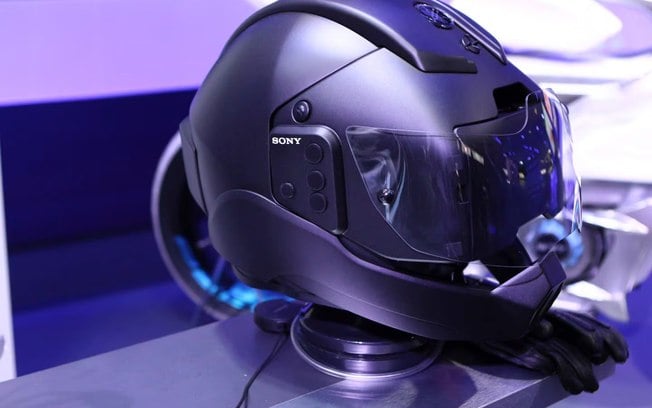Virtual reality (VR) and augmented reality (AR) are heading into a new, more utility-focused phase, with devices like Apple’s Vision Pro and Meta’s Quest, indicating significant advances in this technology that can also be used in traffic. Now, Yamaha is in on the action with the development of an AR helmet designed specifically for motorcyclists.
AR, an evolution of conventional heads-up visors, which overlay information on the normal field of vision, has been tried on helmets before. While prototypes have been introduced by companies such as BMW in the past, progress has been slow. However, Yamaha shows its commitment to this technology by patenting a new system that promises to revolutionize the riding experience.
Unlike previous prototypes, Yamaha’s new AR helmet takes a safer approach, abandoning the idea of completely covering the rider’s eyes with screens. Instead, the helmet has clear lenses that allow the rider to look freely, while computer-generated information and imagery are superimposed on their line of sight.
One of Yamaha’s main concerns is to ensure that the information is accurately superimposed, taking into account the constant movements of the rider’s head. To do this, the helmet is equipped with up to four small cameras mounted on the edge of the AR goggles, which work in tandem with infrared light to determine where the rider’s eyes are focused. This allows the system to dynamically adjust the position of the overlapping images as the rider moves during riding.
While Yamaha has not yet revealed specific details about the information that will be transmitted by the helmet, the patent suggests that the system will be highly adaptable, being able to be used in different types of helmets, from open to closed models. In addition, the company highlights that the technology is not just limited to motorcyclists, but can benefit a wide range of helmet wearers, such as riders and athletes.
While technology is advancing, the question remains whether consumers are ready to adopt AR helmets en masse. The development of these devices certainly represents a significant advancement in safety and user experience for motorcyclists, but only time will tell if this technology will become an essential part of protective gear for two-wheeler enthusiasts.
